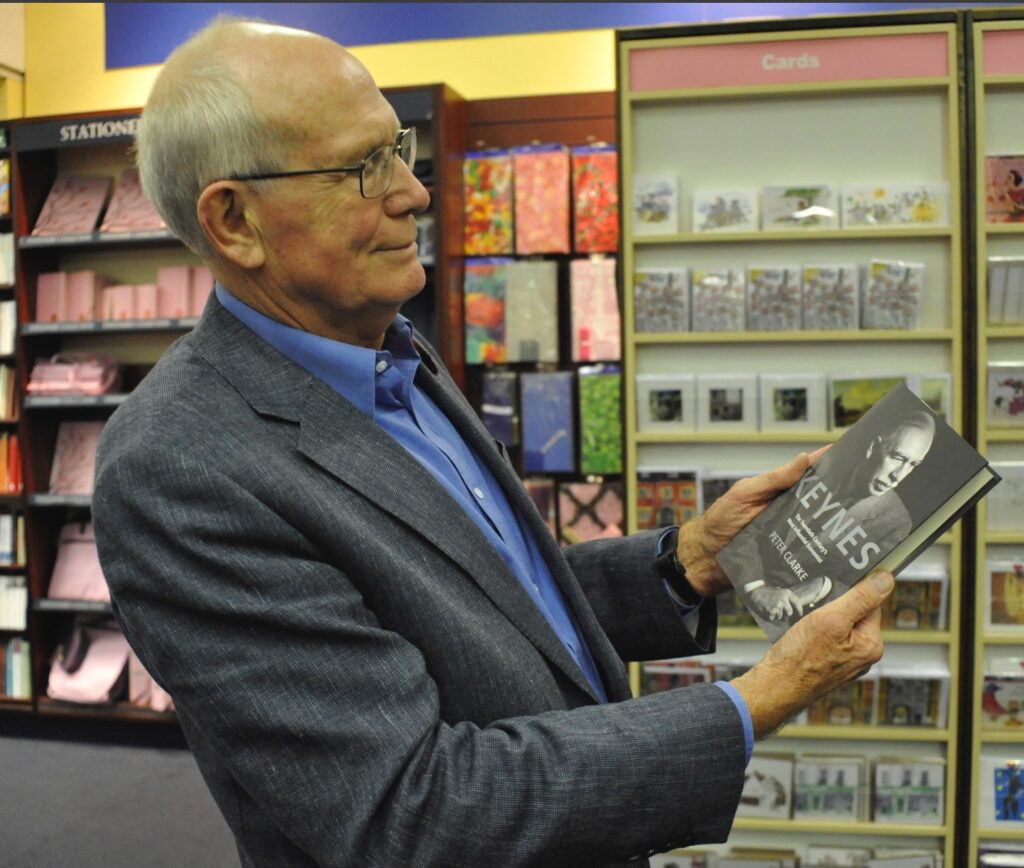Quote of the Day
“The first problem love presents us with is how to find it. But the most enduring problem of love, which is also the most enduring problem of life, is how to live with the fact that we will lose it.”
Musical alternative to the morning’s radio news
John Field | Nocturne No. 3 in A-Flat Major, H 26
Link
Long Read of the Day
Kevin McCarthy Will Live to Lie Again
Terrific, coruscating column by Jack Shafer on the House Minority Leader, whose spine has been surgically removed by Trump.
McCarthy, whose relationship with the truth perpetually veers toward the squishy, suffered two mortifications at the hands of the press on Thursday. First, New York Times reporters Alexander Burns and Jonathan Martin reported from their forthcoming book, This Will Not Pass: Trump, Biden and the Battle for America’s Future, that in a Jan. 10, 2021 call to top Republicans, McCarthy had said Donald Trump should resign from the presidency. “‘I’ve had it with this guy,’ he told a group of Republican leaders,” Burns and Martin wrote.
“Totally false,” McCarthy immediately protested in a statement, and his office denied that he had said Trump should resign. Then came McCarthy’s second indignity as that night MSNBC’s Rachel Maddow played an audio recording, provided by the Times, of McCarthy that proved the Burns and Martin report. Sensing McCarthy’s political corpse was aflame, the press bore down on the House minority leader this morning. “Is Kevin McCarthy toast?” asked my POLITICO colleagues. “The Humiliation of Kevin McCarthy,” gloated the Bulwark’s Charlie Sykes. McCarthy got it in the neck from both members of the commentariat and from Capitol Hill legislators. Trump sycophant Rep. Matt Gaetz (R-Fla.) went so far as to blast his colleague on Twitter over the disclosure.
You can guess what happened next. A trip to Mar-a-Lago to bow and scrape to the man who now appears to own the Republican Party. Shafer exhumes the whole sordid story. I wish more hacks wrote like this.
A self-driving revolution? We’re barely out of second gear
Yesterday’s Observer column:
“Britain moves closer to a self-driving revolution,” said a perky message from the Department for Transport that popped into my inbox on Wednesday morning. The purpose of the message was to let us know that the government is changing the Highway Code to “ensure the first self-driving vehicles are introduced safely on UK roads” and to “clarify drivers’ responsibilities in self-driving vehicles, including when a driver must be ready to take back control”.
The changes will specify that while travelling in self-driving mode, motorists must be ready to resume control in a timely way if they are prompted to, such as when they approach motorway exits. They also signal a puzzling change to current regulations, allowing drivers “to view content that is not related to driving on built-in display screens while the self-driving vehicle is in control”. So you could watch Gardeners’ World on iPlayer, but not YouTube videos of F1 races? Reassuringly, though, it will still be illegal to use mobile phones in self-driving mode, “given the greater risk they pose in distracting drivers as shown in research”.
As usual, the announcement comes coated in three layers of prime political cant. This “exciting technology” is “developing at pace right here in Great Britain” (but apparently not in Northern Ireland; could it be that the DUP doesn’t approve of such advanced technology?). The government is “ensuring we have strong foundations in place for drivers when the technology takes to our roads”, which will be great once it has attended to the crumbling physical foundations of the roads in my neighbourhood. And of course it’s all happening “while boosting economic growth across the nation and securing Britain’s place as a global science superpower”…
Read on
Optimism 2.0
The experiment has started so let’s make it work
Diane Coyle’s illuminating review of Yascha Mounk’s new book, The Great Experiment: How to Make Diverse Democracies Work:
The final part starts with “reasons for optimism” – one of which is that actually, most of the diverse democracies are slowly making progress toward better integration, accepting that people have diverse and multiple identities. The book also argues that optimism is important because it will affect actions and outcomes. It acknowledges what it terms the ‘Chapter 10 problem’ – the generally unsatisfying list of policies at the end of a book, as demanded by publishers and indeed readers. It doesn’t really provide this so much as a few general reflections, concluding: “Constructing diverse democracies that command the enthusiastic support of the great majority of their citzens is going to be hard.” But what choice do we have other than to try? The Great Experiment is already well under way.
So I liked the upbeat message. I don’t think there’s much that’s new here for readers of the death of democracy genre, but the arrangement of the argument into an optimistic outlook is very welcome.
Thinner on paper
Delicious evocation by Peter Hitchens of his early days at the Daily Express:
An air of decline and lost empires pervaded the surprisingly shabby building, whose sleek 1930s exterior concealed dingy offices where filthy, yellowish windows gave us a dreary view of the equally unlovely cigarette-stained newsroom of our rivals next door. The shabby, shouty newsroom, heart of the beast, looked as if the invention of the telephone had come as a complete surprise. Sticky black cables hung from the ceiling in thick clumps like jungle creepers, leading to black dial phones covered in a strange crusty film which I think must have been the congealed breath of a thousand reporters. Typewriters, now only to be found in museums, were everywhere. There was even carbon paper, for making copies. There were men in black waistcoats, endlessly whispering into receivers, who looked as if they had been there since 1936. Compressed-air tubes propelled edited material to the forbidden zones where the compositors worked, giving the corridors the look of those in a large warship…
Hitchins is the only living British journalist who reminds me of Evelyn Waugh, not least because the Express was the model for the Daily Beast in Waugh’s wonderful novel, Scoop.
As admirers of the book will know, Waugh had a low opinion of journalists. His hapless hero, William Boot, for example,
“had once seen in Taunton a barely intelligible film about newspaper life in New York where neurotic men in shirt-sleeves and eye-shades had rushed from telephones to tape machines, insulting and betraying one another in surroundings of unredeemed squalor.”
Technology’s Mindfulness Racket
Lovely by essay Evgeny Morozov (Whom God Preserve).
In yet another sign that the new age lingo of the 1960s is still very much with us, “mindfulness” has become the new “sustainability”: No one quite knows what it is, but everyone seems to be for it. It recently made the cover of Time magazine, while a long list of celebrities—Arianna Huffington, Deepak Chopra, Paolo Coelho—are all tirelessly preaching the virtues of curbing technology-induced stress and regulating the oppressiveness of constant connectivity, often at conferences with titles like “Wisdom 2.0.”
The embrace of the mindfulness agenda by the technology crowd is especially peculiar. Consider Huffington, whose eponymous publication has even launched a stress-tracking app with the poetic name of “GPS for the Soul”—a new app to fight the distraction caused by the old apps—and turned the business of mindfulness into a dedicated beat.
This is from 2014. I love his acerbic style and share his aversion to tech hubris.
This Blog is also available as a daily email. If you think that might suit you better, why not subscribe? One email a day, Monday through Friday, delivered to your inbox. It’s free, and you can always unsubscribe if you conclude your inbox is full enough already!








